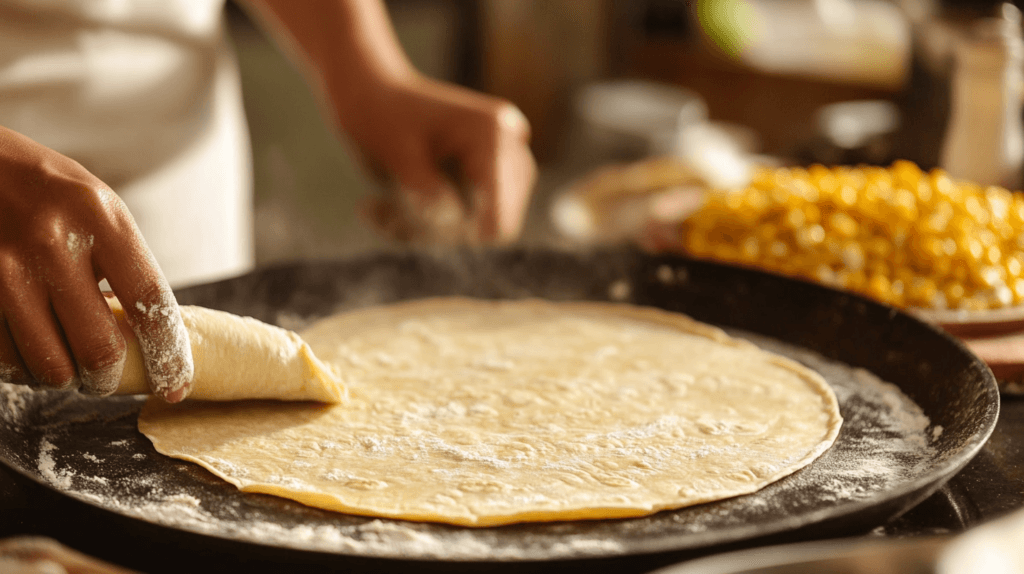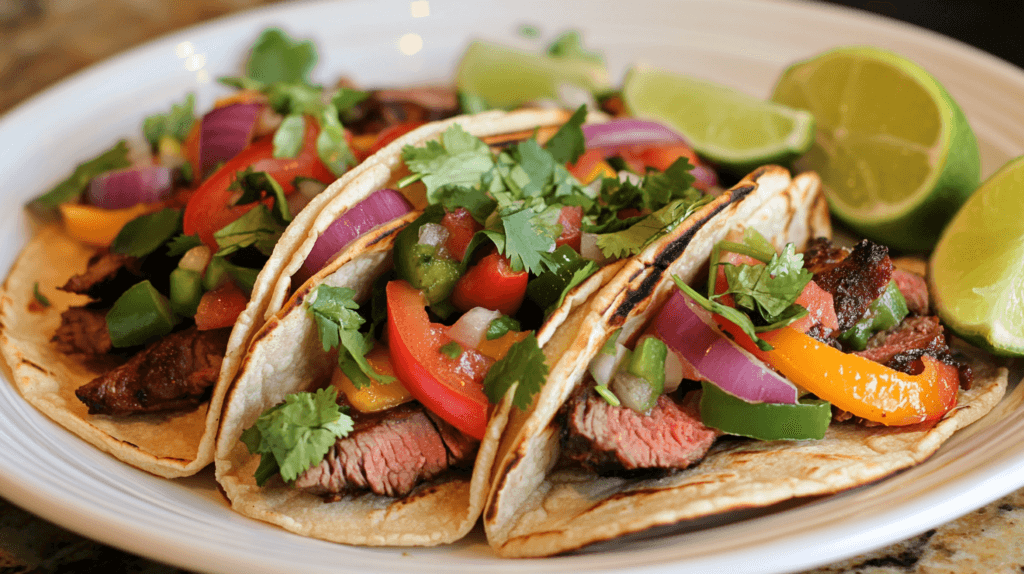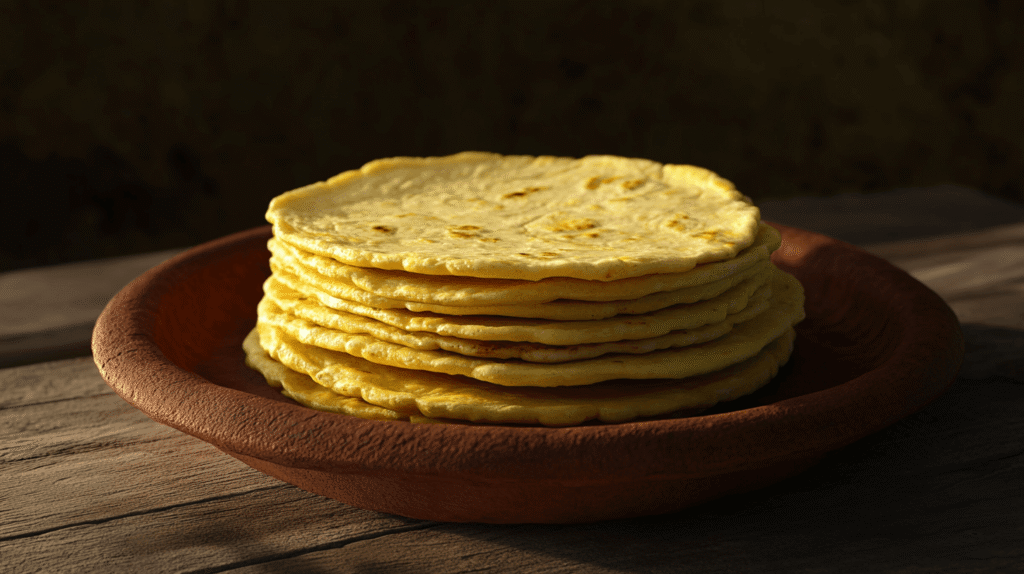Corn tortillas are a staple food in many cuisines, particularly in Mexican and Central American dishes. But for those with gluten sensitivities, allergies, or celiac disease, the question often arises: are corn tortillas gluten free? The short answer is that they usually are—but there are important nuances to understand. This article will dive deep into what makes corn tortillas gluten free, how to identify safe options, and the health benefits of incorporating them into a gluten free diet.
Let’s explore this topic in detail to ensure you can confidently enjoy corn tortillas without compromising your health or dietary needs.
Table of Contents
Introduction to Corn Tortillas

What Are Corn Tortillas?
Corn tortillas are thin, round flatbreads made primarily from corn, water, and lime (calcium hydroxide). Unlike their wheat-based counterparts, they are naturally gluten free when made from 100% corn. They’re widely used in tacos, enchiladas, tostadas, and other popular dishes.
Their texture is slightly firmer and less elastic than wheat tortillas, but they offer a distinct flavor that pairs perfectly with savory and spicy dishes.
History and Cultural Significance of Corn Tortillas
Corn tortillas trace their origins back thousands of years to Mesoamerican civilizations, where maize (corn) was a sacred crop. Ancient Mayans and Aztecs relied on corn as a dietary staple, turning it into tortillas to complement their meals. Today, corn tortillas remain a cultural symbol and dietary mainstay in Latin American cuisine.
Primary Ingredients in Corn Tortillas
The essential ingredients in traditional corn tortillas include:
- Corn (Maize): The primary grain used to make masa (corn dough).
- Water: To bind the ingredients.
- Lime (Calcium Hydroxide): Used in the nixtamalization process to improve the dough’s texture, flavor, and nutritional profile.
Traditional recipes do not include gluten, but modern production methods sometimes introduce other ingredients, which we’ll discuss later.
Gluten: What You Need to Know
What Is Gluten?
Gluten is a group of proteins found in wheat, barley, rye, and their derivatives. It gives elasticity to dough, helping it rise and maintain its shape. While harmless to most, gluten can cause serious health issues for people with gluten intolerance or celiac disease.
Foods Commonly Containing Gluten
Many common foods contain gluten, including:
- Bread, pasta, and baked goods made from wheat flour.
- Processed foods like soups, sauces, and dressings, which often use wheat-based thickeners.
- Some snacks, cereals, and beverages like beer made from barley or malt.
This highlights the importance of carefully checking ingredients, especially in processed products like tortillas.
Why Avoid Gluten?
For individuals with celiac disease, gluten triggers an immune response that damages the small intestine, leading to nutrient malabsorption and other health complications. Others may experience gluten sensitivity, resulting in symptoms like bloating, fatigue, and headaches. For these reasons, avoiding gluten is crucial for maintaining good health.
Are Corn Tortillas Gluten Free?
Corn as a Gluten Free Grain
Corn itself is naturally gluten free, making it a safe grain for those with gluten sensitivities or celiac disease. When corn tortillas are made solely from corn, water, and lime, they are entirely gluten free.
Understanding Cross-Contamination Risks
Despite being gluten free in their purest form, corn tortillas may come into contact with gluten during processing. For example:
- Shared Equipment: If the same machinery processes wheat and corn products, there’s a risk of cross-contamination.
- Mixed Ingredients: Some manufacturers blend wheat flour with corn to create hybrid tortillas, which are not gluten-free.
Certified Gluten-Free Corn Tortillas
To avoid cross-contamination, look for tortillas labeled as “certified gluten-free.” These products undergo rigorous testing to ensure they meet gluten-free standards, making them safe for those with celiac disease.
How to Identify Gluten-Free Corn Tortillas
Checking Labels and Certifications
The easiest way to determine whether corn tortillas are gluten-free is to check the packaging. Look for:
- “Gluten-Free” Label: This indicates the product contains less than 20 parts per million (ppm) of gluten, meeting FDA standards.
- Certified Gluten-Free Seal: This provides additional assurance that the product is safe, especially for those with celiac disease.
- Ingredient List: Ensure the ingredients are limited to corn, water, lime, and any additional safe seasonings. Avoid any product containing wheat, barley, or rye.
Key Brands Offering Gluten Free Corn Tortillas
Several brands specialize in gluten-free tortillas, including:
- Mission Gluten-Free Corn Tortillas: A widely trusted option made from 100% corn.
- La Tortilla Factory: Offers certified gluten-free options with clear labeling.
- Siete Foods: Known for grain-free tortillas, including gluten-free corn alternatives.
- Food for Life: Provides organic and gluten-free tortilla varieties.
These brands prioritize safety and transparency, making them excellent choices for gluten-sensitive individuals.
Homemade Corn Tortillas: A Safe Alternative
If you’re concerned about cross-contamination or additives, making your own corn tortillas at home is a great solution. All you need is masa harina (corn flour), water, and a pinch of salt. Masa harina is naturally gluten-free, but double-check the packaging to ensure it wasn’t processed in a facility that handles gluten.
Simple Recipe for Homemade Corn Tortillas
- Mix 2 cups of masa harina with 1 ½ cups of water and a pinch of salt.
- Knead the dough until smooth.
- Divide it into small balls and flatten using a tortilla press or rolling pin.
- Cook on a hot skillet for 1–2 minutes per side until lightly browned.
Homemade tortillas not only taste fresher but also give you complete control over the ingredients.
Health Benefits of Gluten Free Corn Tortillas
Corn tortillas are not only versatile and delicious, but they also pack several health benefits, particularly when they are gluten-free. Let’s explore these advantages in more depth:
1. Naturally Gluten-Free for Sensitive Diets
One of the most significant benefits of corn tortillas is their natural gluten-free composition. Made primarily from masa harina (corn flour), they are a safe option for individuals with gluten intolerance or celiac disease. They eliminate the risk of inflammatory responses caused by gluten while providing a satisfying base for meals.
2. Rich in Essential Nutrients
Corn tortillas are a good source of essential vitamins and minerals, making them a healthy option for any diet. They contain:
- Fiber: Aids digestion, prevents constipation, and helps maintain a healthy gut.
- Magnesium: Supports muscle function, energy production, and bone health.
- Potassium: Helps regulate blood pressure and supports heart health.
- B Vitamins: Essential for energy metabolism and maintaining a healthy nervous system.
These nutrients are naturally present in corn and enhanced by the nixtamalization process, which boosts the bioavailability of calcium and other nutrients.
3. Low in Calories and Fat
Compared to wheat-based tortillas, corn tortillas are lighter and lower in calories and fat. A single corn tortilla typically contains around 50-60 calories and almost no fat, making it a healthier alternative for weight-conscious individuals.
4. Suitable for Diverse Diets
Corn tortillas are not only gluten-free but also naturally vegan and vegetarian. Their simple ingredients make them suitable for a wide range of dietary preferences and restrictions, from plant-based eaters to those seeking whole-food options.
5. Promotes Satiety and Weight Control
Thanks to their fiber content and relatively low glycemic index, corn tortillas help keep you full longer. This can reduce overeating and help maintain stable blood sugar levels, especially when paired with protein-rich fillings.
Potential Drawbacks and Things to Consider
While gluten free corn tortillas have plenty of benefits, there are some potential downsides to be aware of:
1. Risk of Cross-Contamination
One of the most significant concerns is cross-contamination during production. Even though corn is gluten-free, it may come into contact with gluten-containing grains in facilities that process both. This is why choosing certified gluten-free brands is so important, especially for individuals with celiac disease.
2. Hidden Additives and Preservatives
Some commercially available corn tortillas include additives like preservatives, stabilizers, and gums to improve shelf life or texture. These ingredients can be problematic for individuals with food sensitivities or those following a clean eating plan. Common additives to watch out for include:
- Modified corn starch (not always gluten-free)
- Xanthan gum
- Artificial flavors or colors
3. Potential Use of Mixed Flours
Not all “corn tortillas” are made exclusively from corn. Some brands mix wheat flour with corn to create a softer, more pliable texture. This hybrid version contains gluten and can be harmful to those with sensitivities. Always read ingredient labels carefully to ensure the product is 100% gluten-free.
4. Limited Shelf Life for Fresh Options
Gluten-free corn tortillas made without preservatives tend to have a shorter shelf life. While this is ideal for those avoiding additives, it can be inconvenient if you’re not consuming them quickly. Freezing can help extend their usability.
Recipes and Tips for Using Gluten Free Corn Tortillas

Corn tortillas are incredibly versatile and can be used in a wide variety of dishes. Here are some recipes and practical tips to get the most out of them:
1. Easy Gluten-Free Corn Tortilla Recipes
Here are three simple recipes to incorporate gluten-free corn tortillas into your meals:
a. Classic Tacos
- Ingredients: Gluten-free corn tortillas, seasoned meat (or plant-based protein), fresh vegetables, and salsa.
- Instructions: Heat the tortillas in a skillet, fill them with your desired toppings, and enjoy a quick, satisfying meal.
b. Enchiladas
- Ingredients: Corn tortillas, enchilada sauce, shredded cheese, and your choice of filling (e.g., chicken, beans).
- Instructions: Roll the filling inside tortillas, place them in a baking dish, cover with sauce and cheese, and bake until bubbly.
c. Tortilla Chips
- Ingredients: Corn tortillas, oil, and salt.
- Instructions: Cut tortillas into triangles, brush with oil, sprinkle with salt, and bake until crispy.
2. Creative Meal Ideas Using Corn Tortillas
Get creative and elevate your gluten-free meals with these ideas:
- Breakfast Tacos: Fill with scrambled eggs, avocado slices, and a sprinkle of cheese.
- Tostadas: Crisp the tortillas in the oven, then layer them with refried beans, lettuce, and guacamole.
- Tortilla Pizza: Use a corn tortilla as a thin crust, top with marinara sauce, cheese, and your favorite toppings, then bake.
- Quesadillas: Add cheese and veggies between two tortillas, heat until golden and gooey, and slice into wedges.
3. Storing Gluten-Free Corn Tortillas
To ensure your tortillas remain fresh and flavorful, follow these storage tips:
- Refrigeration: Store opened packs of tortillas in an airtight container or resealable bag to prevent drying out.
- Freezing: Place tortillas in freezer-safe bags with parchment paper between each one to avoid sticking.
- Reheating: Warm them on a skillet, in the oven, or in the microwave with a damp paper towel to restore pliability.
4. Pairing Gluten-Free Corn Tortillas with Healthy Fillings
Enhance the nutritional value of your corn tortillas by pairing them with nutrient-dense fillings:
- Protein Options: Grilled chicken, black beans, tofu, or scrambled eggs.
- Vegetables: Bell peppers, spinach, onions, and tomatoes.
- Healthy Fats: Avocado, guacamole, or a drizzle of olive oil.
By keeping these tips in mind, you can enjoy corn tortillas in delicious and creative ways while staying confident that they align with your dietary needs.
Frequently Asked Questions (FAQs)
Are all corn tortillas completely gluten-free?
Not always. While traditional corn tortillas are gluten-free, some commercial products may include gluten due to cross-contamination or the addition of wheat flour. Always check the label for certification. You can also explore how to fry corn tortillas for the best crunch to better understand how to handle corn tortillas safely.
How can I test for gluten contamination?
If you’re extremely sensitive to gluten, consider using a gluten detection kit like Nima Sensor to test for trace amounts of gluten in food. For additional inspiration, check out does Crumbl Cookie have gluten-free options? for insights into avoiding gluten contamination in snacks.
Are homemade corn tortillas safer for gluten-sensitive people?
Yes, making tortillas at home ensures you control the ingredients and avoid potential cross-contamination.
Can I eat corn tortillas if I have celiac disease?
Yes, as long as they’re certified gluten-free and made without cross-contamination, corn tortillas are safe for those with celiac disease.
What brands should I trust for gluten-free corn tortillas?
Trusted brands include Mission, La Tortilla Factory, Siete Foods, and Food for Life, all of which offer certified gluten-free options.
Conclusion
Corn tortillas are a delicious and naturally gluten-free option, but not all are created equal. By understanding the ingredients, checking for certifications, and even making your own, you can enjoy corn tortillas safely. Whether you’re making tacos, tostadas, or enchiladas, these versatile flatbreads can elevate your meals while supporting a gluten-free diet. If you’re curious about expanding your gluten-free cooking skills, gluten-free dinner recipes might inspire you to create a broader menu.
Printable Recipe Card
Want just the essential recipe details without scrolling through the article? Get our printable recipe card with just the ingredients and instructions.

